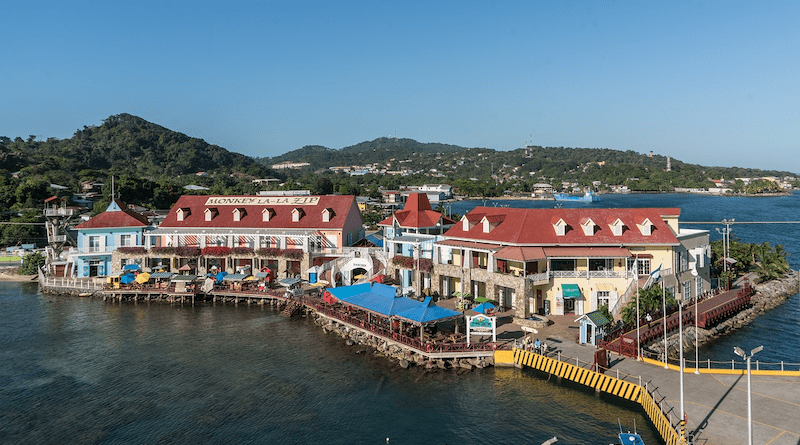Why Prospera Is key To Winning The Battle For Honduras’ Future – OpEd
When Zones for Employment and Economic Development (ZEDEs) were introduced in Honduras in 2013, they heralded a new dawn of investment and job opportunities. So far, they have lifted thousands of Hondurans out of poverty by providing them with the financial backing and know-how they need to unlock their true potential and thrive in business. By enabling them to shape their own future, they have fostered a new and upwardly-mobile generation of entrepreneurs and start-ups that will drive the country’s economy forward.
A shining example of this is Prospera, a ZEDE on the island of Roatan, alone, has already attracted almost $100 million in US private investment, with that figure expected to reach $500m by 2025. When extrapolated on a national scale, that figure could run into the tens or even hundreds of billions.
Over the years, faced with rising unemployment and social and economic hardship, Hondurans have fled their country in their droves in search of a better life in the US and other neighbouring countries. But ZEDEs offer a new hope as safe havens where they can continue to prosper without having to leave their homeland and family behind.
ZEDEs have come under fire for the perceived unfair advantage they give businesses operating in them, and fears that they could facilitate money laundering and financial crime. Honduras’ president Xiomara Castro has perpetuated this sentiment and ill feeling, last year signing a measure to repeal the legislation governing ZEDEs, leaving them in limbo.
Yet, any such criticism of ZEDEs is simply untrue and is, anyway, by far outweighed by the economic benefits it provides to society. Regardless of a minority of people’s negative attitude towards ZEDEs, they are a force for good, as proven by Prospera.
Protecting ZEDEs
ZEDEs have constitutionally-protected acquired rights of their investors, a 50-year legal stability agreement guaranteeing the rights and privileges of investors, and international investment law protection, including the Central America Free Trade Agreement and the US-Honduras Bilateral Investment Treaty. If the state denied these rights, it would be in direct violation of its obligations under international and national law based on well-established legal principles.
In short, getting rid of ZEDEs would be a remarkably short-sighted move, particularly as there are no other long-term solutions to replace them. If Castro gets her way, it will set the country back decades economically and socially.
Prospera is a key special economic zone and nearshoring site for US companies relocating from China. It’s also a natural landing and jump-off point for American firms seeking to do business in Central and South America.
Yet Castro continues to attack ZEDEs, labelling Prospera as the “Enemy of the people”. This is despite all the obvious economic benefits they bring and their output thus far, given that, to date, US companies have invested almost $3.2 billion in the region, creating jobs in existing sectors such as agriculture and new ones like technology and cryptocurrency.
Hondurans must make a stand and demand that Castro meets with the US Government and ZEDE proponents to forge an agreement that enables them to continue to flourish. Only by getting round the table can they resolve their differences for the greater good of the country and its Western trading partners. The bottom line is that ZEDEs can save Honduras and its economy and people, while continuing to provide a much-needed boost to the North American market. The evidence is irrefutable.
If they are allowed to continue and grow, ZEDEs will raise the gross domestic product per capita to $36,000 by 2050, estimates the Universidad Francisco Marroquin, dwarfing the current GDP of $2,772. Whichever way you look at it, they’re already having a big impact, driving GDP per capita growth by 17% between 2020 and 2021.
At its current rate, it would take Honduras more than 100 years to become a developed nation, which is completely unacceptable in this day and age. That is just another reason why the US must protect and implement ore ZEDEs, while continuing to push back on Castro’s new agenda.
By outlawing ZEDEs and other high-growth practices, Castro is deliberately holding back decent and hardworking Hondurans, and denying them the chance to economically empower themselves. If allowed to pursue her dangerous and flawed agenda, she will irreparably damage not only Honduras’ economic prospects but also those of her own people.
Esteban Del Castillo is a freelance writer originally from Honduras


I hope Prospera fails.
The part you’re leaving out in your biased article is that Prospera’s intent has always been to be untouchable by its host county’s government and laws. People in Roatan have been extremely stressed out by this operation. You say Hondurans are being held back from economically empowering themselves… Goodness, what a load of BS, pardon my English. Corporations shouldn’t be allowed to own cities and run them willie nillie as they see fit. This is a backwards move into some sort of modern-day feudalism. Corporations doing such a thing would answer to no one. It isn’t democratic, no one elected them, which means they would stay forever, even if people were against them. No elections, EVER! The corporation owns everything in the city and therefore everyone. Scary proposition. Can’t believe you are vouching for this.